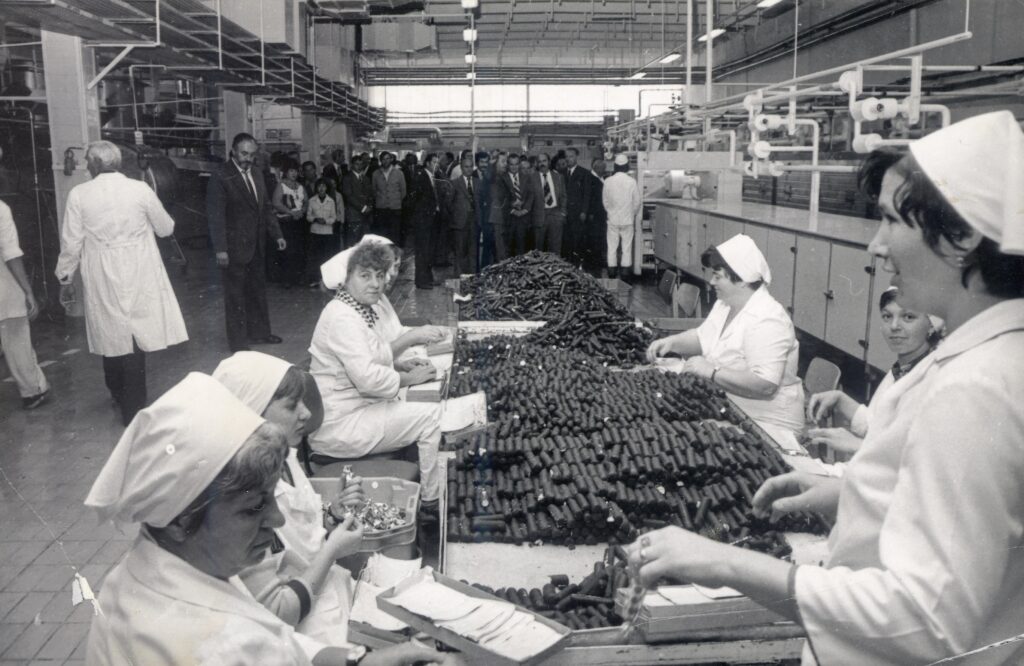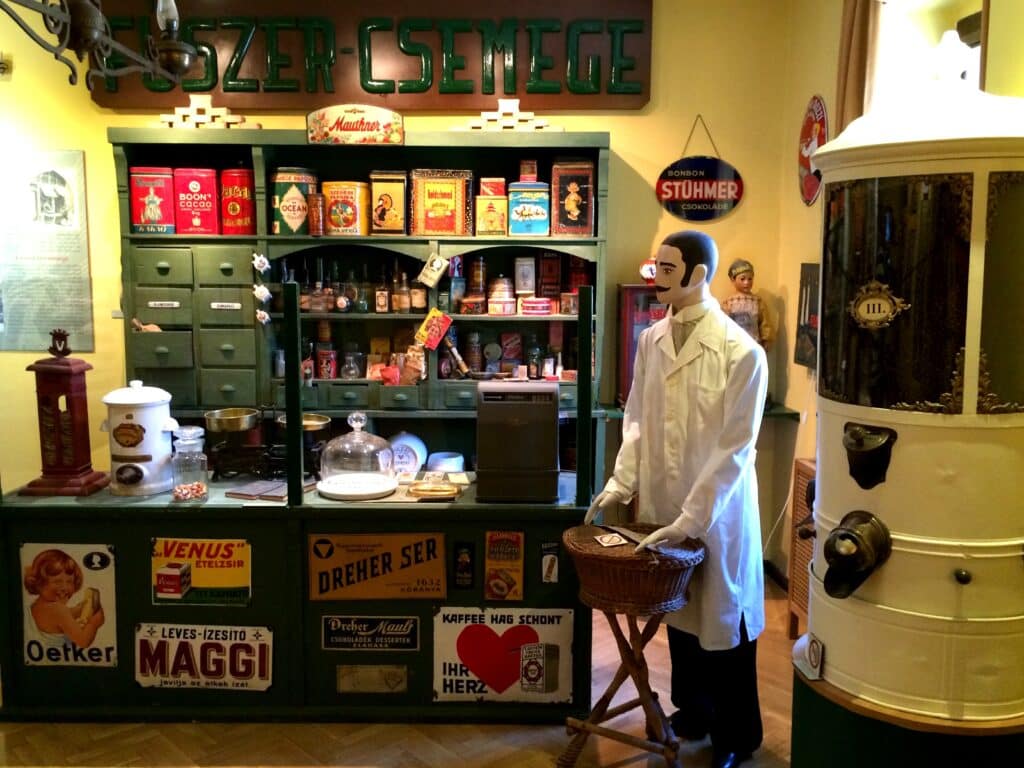List of English words of Hungarian origin
biro = golyóstoll
From László Bíró, the Hungarian inventor of the ballpoint pen.
coach = kocsi
From kocsi, a horse‐drawn wagon with springs above the axles. Named after the village of Kocs in which this type of vehicle was invented. The verb ‘to coach’ is also derived from this root.
czardas = csárdás
From csárdás, a Hungarian folk dance. Csárda also means ‘tavern’.
Dobos torte or Dobosh = dobostorta
From Dobos torta, “Dobos cake”. After confectioner József C. Dobos.
friska = a csárdás gyors része
From friss, a fast section of music, often associated with czardas dances.
goulash = gulyás
From gulyás, a type of stew known in Hungarian as gulyás. Gulyás also means ‘herdsman’ dealing with cattle, as the noun gulya is the Hungarian word for cattle herd.
hajduk = bandita
From hajdúk, “bandits”. Outlaw, guerilla fighter. The original Hungarian meaning was “cattle drover“. A hajduk is a type of peasant irregular infantry found in Central and Southeast Europe from the early 17th to mid 19th centuries. They have reputations ranging from bandits to freedom fighters depending on time, place, and their enemies.
halászlé
,or Fisherman’s Soup, a very hot and spicy river fish soup with a lot of paprika. (The actual Hungarian halászlé is not always made with hot paprika, unlike the internationally-known soup.)
hussar = huszár
From Hungarian huszár, a light cavalry soldier. The Hungarian word originally meant “freebooter” and was further derived via Old Serbian husar, gusar, gursar (“pirate“) from Italian corsaro (“pirate”), i.e. the same root as that of English corsair.
Itsy-bitsy = icipici
is sometimes linked to Hungarian ici-pici (“tiny”) but is regarded as an unrelated English formation by English dictionaries.
komondor
A big Hungarian breed of livestock guardian dog, looking like big mop, always white.
kuvasz
A big Hungarian breed of shepherd dog, always white.
lassan
From lassú, “slowly”. a slow section of music, often associated with czardas dances.
palacsinta
a form of pancake popular throughout central Europe
paprika
a spice produced from the ground, dried fruits of Capsicum annuum, a red pepper
puli
A small Hungarian breed of shepherd dog, also looking like a mop, usually black or white.
pusta
From puszta, a kind of Hungarian steppe.
sabre (UK) or saber (US) = szablya, kard
From French (sabre, sable), ultimately from an unknown source in a language of Eastern origin, possibly through Hungarian szablya.
shako or tsako = csákó
From csákó süveg, ‘peaked cap’, a stiff military hat with a high crown and plume.
tokaji or tokay
From tokaji aszú, the name of the wine from Tokaj, the centre of the local wine-growing district Tokaj-Hegyalja.
verbunkos
a Hungarian men’s folk dance and musical style (itself coming from German Werbung – meaning “military recruitment” here).
vizsla or vizla
From vizsla, a Hungarian breed of hunting dog.
source: wikipedia
Vocabulary
inventor | feltaláló |
ballpoint pen | golyóstoll |
horse‐drawn wagon | lovaskocsi |
spring | rugó |
axle | tengely |
to derive | eredni, származni |
root | tő |
folk dance | néptánc |
tavern | csárda, kocsma |
confectioner | cukrász |
herdsman | gulyás, marhapásztor |
cattle | szarvasmarha |
cattle herd | marhacsorda |
outlaw | bandita |
cattle drover | marhahajcsár |
peasant | paraszt |
infantry | gyalogság |
reputation | hírnév |
enemy | ellenség |
spicy | fűszeres |
cavalry | lovasság |
freebooter | martalóc, kalóz |
pirate | kalóz |
breed | fajta |
livestock guardian dog | juhászkutya |
mop | felmosófej |
shepherd dog | juhászkutya |
spice | fűszer |
peaked | csúcsos |
plume | sisakforgó |
recruitment | toborzás |
hunting dog | vadászkutya |








